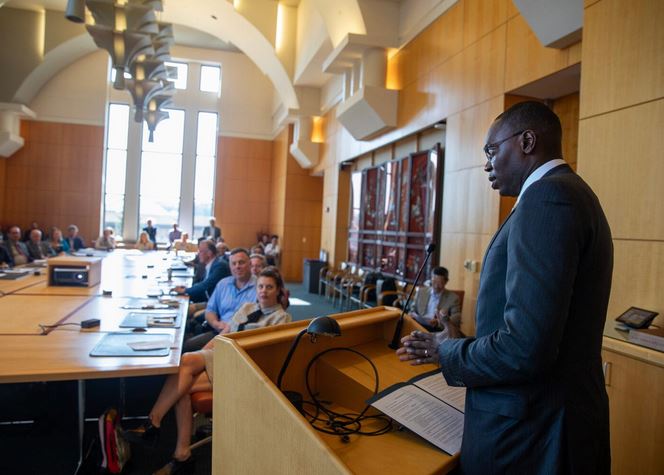
Michigan Engineering News reports that roughly 40 decision-makers in battery research, industry, aviation and government met at Michigan Engineering on Aug. 3 to talk about electrifying aviation as the nation’s first battery research program housed in a top aerospace department begins to take shape.
The event was organised by Venkat Viswanathan, an incoming professor of aerospace engineering who specialises in high-energy density batteries for aviation. His research programme at the University of Michigan will begin this fall.
According to the report “The College of Engineering recently launched a new USD130 million Electric Vehicle Center. Meanwhile, the Department of Aerospace Engineering has long been a leader in electric propulsion for space, and the Department of Naval Architecture and Marine Engineering is advancing electric shipping. Viswanathan’s research program will begin to address electric mobility in air.
“A thread through the conversation was an energy density goal of 1 kilowatt-hour per kilogram, more than three times the energy density of the batteries that power electric vehicles today. In battery research, the energy density problem is considered essentially solved for electric cars. Today’s electric cars average a range of 290 miles, with 8- to 10-year warranties. Airplanes, on the other hand, need much higher energy density to be practical for cross-country flights.
“Viswanathan says he believes batteries for aviation are approaching a “Bannister moment,” referring to Roger Bannister, the first man on record to run a mile in less than four minutes. “Doctors said it was impossible—that his lungs would explode,” said Viswanathan.
“But once Bannister decided to attempt it anyway, Viswanathan said, “It’s not shocking that he did it. It’s shocking how long that record stood: 46 days.”
“Once breaking the limit was shown to be possible, athletes pushed further, and this is what Viswanathan anticipates for battery technology.”
“Most people are only shooting for 400 to 500 Watt hours per kilogram. An ambitious number like 1k is needed,” said Rajesh Swaminathan, a partner at Khosla Ventures. Khosla is invested in batteries, including the company QuantumScape, as well as aviation. It is exploring emerging electric aviation companies.
For more information
(Image: Michigan Engineering News)


